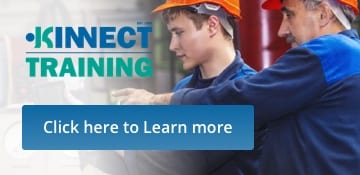KINNECT are proud to provide Facilitated Discussion for Victorian workers and employees as part of our suite of Workplace Rehabilitation Services.
What is Facilitated Discussion?
Facilitated Discussion is an alternate method of dispute resolution for injured workers where workplace relationship issues or interpersonal conflict presents as a barrier to recovery and return to work.
Like mediation, it is a non-legal process that is guided by a trained professional, allowing the parties to raise issues and concerns and find solutions together in a supportive environment.
Facilitated Discussions are coordinated and led by KINNECT’s accredited facilitator at the request of an insurer, employer or worker.
“Facilitated Discussion is a voluntary process which offers a safe and supportive environment to identify the barriers to you returning to work. on reaching a mutual agreement and pathway forward. Returning to safe and sustainable work is the goal for all injured workers.” – WorkSafe Victoria
How do Facilitated Discussions work?
Facilitated Discussions involve a simple, two-step process:
1. Our facilitator has separate meetings with the worker, employer and, in some cases, the treating health practitioner to collect information.
2. A joint session with the facilitator, employer and worker occurs following the two separate meetings in step one.
Workers can bring a representative to support and assist them, however that person must not be a legal practitioner.
The facilitator’s role is to mediate the discussion while remaining impartial, independent and transparent. They can help clarify what is being discussed and confirm any agreements that are made. They will guide both parties towards a resolution and report on the action plan agreed to.
The meeting does not have to take place at the employer’s workplace. In fact, a neutral location, like KINNECTs office, can help to make participants feel more comfortable.
What are the Benefits of Facilitated Discussion?
Facilitated Discussions are used to overcome challenges preventing an ill or injured worker from returning to work such as:
- Interpersonal conflict or unresolved differences
- Issues with a colleague(s) behaviours
- Ethical issues
- Concerns about workload or work type
- Working conditions
- Supports provided for the worker
- Communication concerns/misunderstandings
Facilitated Discussions help by:
- allowing both parties to air concerns in a safe environment.
- providing an opportunity for parties to seek answers to questions and concerns
- uncovering possible solutions and coming to a mutual agreement
- offering an opportunity to heal the worker/employer working relationship
Who is Facilliated Discussion available for?
KINNECT provide Facilitated Discussions for workers undergoing workplace rehabilitation for an illness or injury in Victoria, for employer funded files, or as an early intervention measure to avoid a claim being lodged.
The process is voluntary for workers however, we encourage participation when the injured/ill worker feels ready to do so as it can bring up uncomfortable topics and emotions.
FAQ
Who delivers Facilitated Discussion?
Facilitated Discussion is coordinated and delivered by a qualified Rehabilitation Counsellor or Psychologist who has undertaken training and accreditation in Facilitated Discussion with a recognised body in Australia.
Who can request Facilitated Discussion?
Facilitated Discussion can be requested by the employer, worker or the insurer.
What issues can Facilitated Discussion help to resolve?
The path to rehabilitation is not always smooth, and it is not uncommon for conflict and confusion between workers and employers to bring this journey to a standstill.
Common barriers to returning to work after an injury are interpersonal conflict and relationship breakdown between the employer and worker, a lack of understanding about what supports the worker needs, and conflicting opinions about what happened leading up to, during, and after the incident. Not only do these barriers make a worker less inclined to want to return to work, but the mental health toll it takes can slow down recovery.
Facilitated Discussion can help people work through these sticking points, repair relationships and, in the best cases, get the injured worker back to work sooner.
Additional Resources
Ready to partner with KINNECT?
Request a Service
Know what you need from us? Request a service from us right now.
Locate us
Have a need in a particular location? View our service capabilities throughout Australia.
